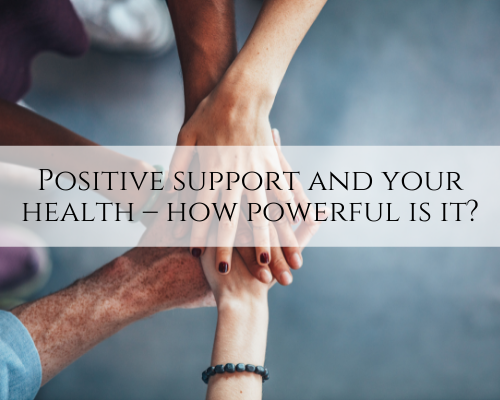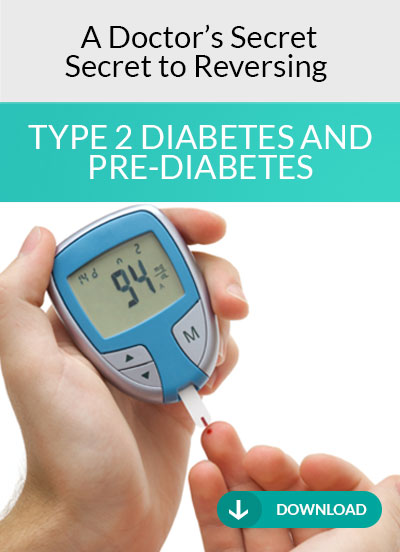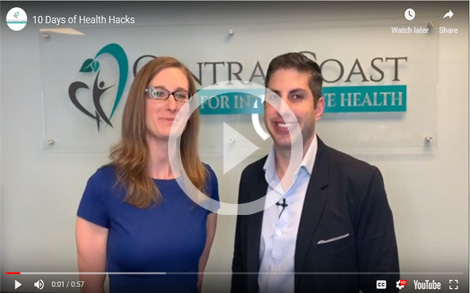What is the Power of Positive Support?
Managing your health is a difficult job to do alone; navigating a diagnosis and following through on wellness recommendations can be more successful with support. It is easier to fall off your plan while alone. However, the support you need has to be positive and ultimately help you reach your health goals. Having a support network made up of different people can become a solid foundation for success. There are a few questions you need to ask yourself when looking for support networks:
What Are You Looking For?
Diet and lifestyle changes are some of the most difficult habits to change but they deliver the longest-lasting results. As you start your journey toward optimum health, figure out your goals, the areas where you need extra help to succeed, and what kinds of support are best suited to you.
Support can look like many things and it can help with a variety of challenges including:
- Dietary changes – elimination diet, weight loss, and anything else having to do with food.
- Conventional medicine – since this is considered standard perspective and approach of medicine in American doctor offices and hospitals it may feel like you are not receiving the support you need. Seeking out doctors in other fields can be beneficial. These include functional medicine, holistic, homeopathic, Ayurvedic medicine, traditional Chinese medicine, and other healthcare professionals.
- Exercise – what kind of physical activity you want to practice.
- Work and travel – your work schedule, work-life, and travel can hinder or complicate health changes you need to make. Finding support at work is an important part of the equation.
- Alcohol and substance abuse – cutting out addictive substances can be extremely difficult without support. There are multiple resources to help you with these journeys.
How and Where Do You Find Positive Support?
Support can come from a variety of different people in your life to help you make the changes needed for optimum health. These can include a healthcare team such as a health coach, family support, support from friends, or groups. When it comes to positive support on your health journey, the more the merrier!
Why Is Support So Important?
Research shows the link between social relationships and their connection to health and wellness. The diversity of these relationships has also shown that people fare better, have less cognitive decline, better mental health, and are better able to handle chronic illnesses. This kind of support can be given in many different ways including instrumental support (physical help), informational support, or emotional support.
The Power of Positivity
According to Dr. Shilagh Mirgain, positive social support is crucial to wellness, “Having strong, positive social support is one of the most important factors in predicting the physical health and well-being in people of all ages,” explains Mirgain. “It can help us cope effectively with stress and even help strengthen our immune system and lower our risk of disease.”
When you receive positive support from the people around you, it can make change easier, adopting a healthy lifestyle attainable, and can help you feel good about yourself.
How to Build A Support System of Positivity
Positive support isn’t hard to find and you may find that you need different support for different aspects of your health. For example, maybe you need strong research-backed advice from a nutritionist or health coach. Or maybe you want your family to make changes in their lives such as keeping junk food out of the main eating areas or eating healthier along with you. This can also look like a friend that is your running buddy on Saturday morning or a Facebook group that makes you feel like you aren’t alone dealing with it all by yourself.
It is important to ask for help and creating a supportive positive environment will help you achieve your health goals. Types of positive support groups include:
Healthcare team
This has been recognized as a crucial tool for better health. When you see your health from a multi-disciplinary perspective, it gives you a chance to benefit from a wide range of practices, ideas, and ultimately the health approaches that work best for you, your body, and your lifestyle. Your healthcare team can include your primary care physician, functional medicine doctor, nurse, pharmacist, therapist, dietitian, rehabilitation specialist, and spiritual support providers. They provide positive support by giving you the tools you need to succeed, helping diagnose and navigate your condition, and they give you professional advice and treatment options to help you feel your best.
Family support
Most often the best positive support your family can give you is to make changes with you, even temporarily to help you stick to your new health plan. In fact, according to research the central role for an individual’s well-being over their life is shaped by family relationships whether positive or negative. The support your family provides should be positive including love, advice, care that leads to a greater sense of self-worth, better coping skills, positivity, optimism, and encouragement to live healthier.
Support from friends
Whether your friends are your chosen family or your peers or coworkers, they too are important to your health and can give you different perspectives and advice than family members can. According to Mayo Clinic, friendship can “enrich your life and improve your health.” Whether you have a gym buddy, a friend that can empathize with you because they have had similar experiences, or a friend always ready to give you a pep talk – friends are important to your health.
Benefits of friendship include:
- Improved sense of belonging and purpose
- Stress-reduction
- Feelings of happiness
- Increased self-worth and confidence
- Better ability to cope with trauma
- Strong motivator or cheerleader when you are making changes to your health and lifestyle
- Holding you accountable
Group Support
The support of a group can be an excellent tool for making changes to your health. When people gather together in a group and are experiencing the same things, trying to accomplish the same goals, or are suffering from the same health conditions – a group can work wonders. Sharing problems, working together, or just hearing each other out can be incredibly therapeutic and motivating. The positivity from a group setting is focused on the issues at hand and allows for powerful change.
Types of Group Support
- In-person – these groups can be found in many places within your community including community centers, places of worship, hospitals, non-profit organizations, and schools.
- Virtual group – these can include Facebook pages, chat rooms, message boards, discussion boards, and websites that focus on group support.
Negativity and Sabotage in Your Support Network
Now that you understand the power of positivity, imagine how detrimental negative support is to your well-being. This can show up in your life in several ways. Some people may be negative a lot of the time (called a “Negative Nancy”) and others may do it unintentionally.
Unintentional Sabotage
Ever try an elimination diet like going gluten- or dairy-free and your friend or family member wants you to join them for pizza or ice cream? You may have heard these phrases: “One bite isn’t going to kill you” or “I would never change my diet that way.” You just put two weeks of hard work into adjusting your diet so you can figure out the culprit of your health issues. You think, it probably isn’t going to hurt me to take one bite, or eat it just this once. But in reality, it is going to lengthen your diagnostic stage and it could land you back at square one feeling horrible. This also goes for weight loss goals, alcohol when you are trying to go sober, or eating something that can trigger your autoimmune disorder and make you feel worse. “Skip the gym today – it isn’t a big deal,” a friend or family member might say. They don’t intend to be mean or sabotage you, but they are not giving you positive support either.
Toxic People
Everyone has a few toxic people in their lives, some are avoidable and some are not. During times of change or progress along your health journey, you may want to avoid toxic people or take a break from the relationship if you need only positive support around you. Toxic relationships can hinder us, negatively impacting both physical and mental health. Toxic relationships can put people at higher risk of developing heart problems. Whether this behavior is unintentional or purposeful, it is better for your health if you stay away from negativity. Not sure if you have a toxic person in your support network? Here are some signs that you are in a toxic relationship.
Some reasons why people undermine your health efforts:
- They may think your lifestyle changes are a threat to your relationship.
- They may feel you are judging them for their lifestyle and health choices.
- They may be afraid that you will change and no longer be the old you or want to spend time with them.
Diet and lifestyle changes are some of the most difficult changes to implement. Building a positive support team will help you meet your goals. The first step to increasing the positive support in your life is to figure out your own needs and what appeals to you. Secondly, take a hard look at the people in your existing support groups and make sure you reduce or eliminate the toxic behaviors and negativity they may bring to your life. Third, be willing to ask for help – your healthcare team is a great place to start especially for informative support.
Board Certified in Integrative Medicine
Certified Functional Medicine Practitioner
Institute for Functional Medicine Certified Practitioner






